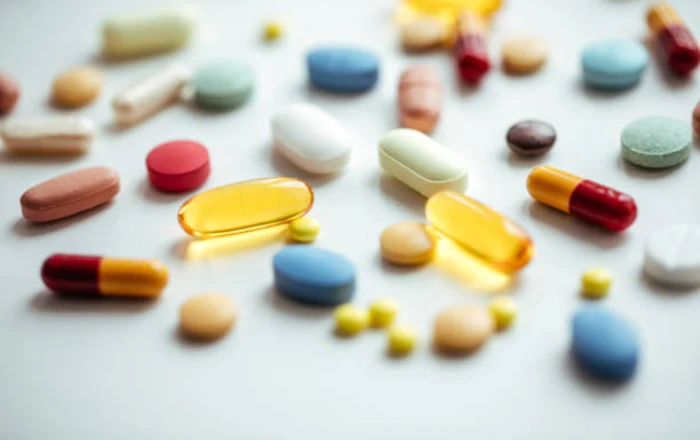The role of sports nutrition supplements in muscle repair is increasingly recognized in the athletic community. These supplements provide critical nutrients that aid in recovery after strenuous physical activity, with particular emphasis on protein, carbohydrates, and branched-chain amino acids (BCAAs). Understanding the specific types of supplements available and their ideal timing can greatly influence an athlete’s recovery process. However, the nuances of how these supplements interact with various training regimens and individual needs raise important questions. What implications do these factors have for performance and long-term health?
Importance of Muscle Repair
Muscle repair is a crucial process that cannot be overlooked by athletes and fitness enthusiasts alike. Following intense physical activity, muscle fibers undergo microtears that require timely and effective repair for peak health and performance. This repair process is essential not only for restoring muscle functionality but also for enhancing strength and preventing injuries. When muscle repair is compromised, athletes may experience prolonged soreness, decreased performance, and increased risk of fatigue. Research indicates that adequate recovery time and appropriate strategies, such as rest and hydration, greatly influence muscle repair dynamics. Consequently, prioritizing recovery strategies is essential for maintaining overall health and maximizing athletic potential. Understanding the importance of muscle repair sets the foundation for effective training regimens and long-term athletic success.
Key Nutrients for Recovery
Recovery from intense physical activity relies heavily on specific nutrients that play essential roles in repairing muscle tissue and replenishing energy stores. Key nutrients include protein, carbohydrates, vitamins, and minerals. Protein, particularly from sources enhanced with ProHydrolase, aids in the breakdown and absorption of amino acids, promoting muscle repair and growth. Carbohydrates are critical for replenishing glycogen stores depleted during exercise, while vitamins such as C and E provide antioxidant support to mitigate oxidative stress. Additionally, minerals like magnesium and zinc are important for muscle function and recovery. AstraGin enhances the absorption of these vital nutrients, ensuring optimal recovery. Incorporating these nutrients into a balanced nutrition plan can greatly enhance recovery outcomes, ensuring athletes are prepared for subsequent training sessions or competitions.
Types of Sports Nutrition Supplements
In the domain of sports nutrition, a variety of supplements are available to support athletes in their training and performance goals. Among these, branched-chain amino acids (BCAAs) are essential for muscle repair and recovery, as they help reduce muscle soreness and stimulate protein synthesis. Creatine is another popular supplement that enhances strength and supports quick recovery. Additionally, beta-alanine, often found in products like CarnoSyn, aids in buffering lactic acid, potentially improving endurance during high-intensity workouts. nooLVL, a nootropic compound, has gained attention for its ability to enhance focus and cognitive function, which can be beneficial during training. These supplements, when used appropriately, can greatly contribute to an athlete’s overall recovery strategy.
Timing and Dosage Recommendations
The effectiveness of sports nutrition supplements largely depends on their timing and dosage. To optimize muscle repair, it is recommended to consume protein-rich supplements within 30 minutes post-exercise, a critical window for recovery. This timing enhances protein synthesis and reduces muscle breakdown. For endurance athletes, carbohydrates should be ingested alongside protein to replenish glycogen stores effectively.
Dosage varies based on individual needs, but a general guideline suggests 20-30 grams of protein and 30-60 grams of carbohydrates post-workout. Additionally, branched-chain amino acids (BCAAs) can be beneficial when taken before or during exercise to mitigate muscle soreness. Adhering to these recommendations guarantees that sports nutrition supplements deliver maximum benefits for muscle repair and overall performance.
Real-Life Success Stories
Through the lens of real-life success stories, the impact of sports nutrition supplements on muscle repair becomes evident. Athletes and fitness enthusiasts increasingly share their experiences with products like InstAminos, a branched-chain amino acid supplement designed to enhance recovery. For instance, a competitive runner reported a significant reduction in muscle soreness after incorporating InstAminos post-workout, allowing for more consistent training sessions. Similarly, a bodybuilder noted improved muscle repair and growth, attributing these gains to the timely consumption of amino acid supplements. These testimonials underline the practical benefits of using targeted supplements in conjunction with a well-structured training regimen. Such real-world examples provide compelling evidence for those considering sports nutrition supplements as a valuable aid in their muscle recovery journey.
Conclusion
To summarize, sports nutrition supplements play an essential role in muscle repair by providing necessary nutrients that support recovery processes. Protein supplements deliver necessary amino acids for muscle fiber reconstruction, while carbohydrates restore glycogen levels. Additionally, compounds such as BCAAs and creatine can mitigate muscle soreness and expedite recovery. Proper timing and dosage of these supplements can further optimize their effectiveness, ultimately enhancing athletic performance and reducing the risk of injuries.

